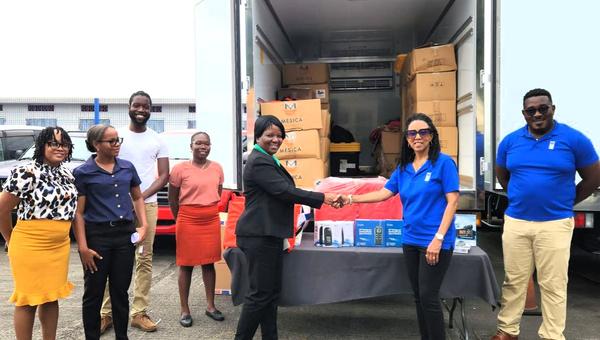
Being LGBTI in the Caribbean
Being LGBTI in the Caribbean (BLIC) is a regional programme that aims to enhance knowledge, partnerships, and capacities of LGBTI communities, civil society and States to reduce human rights violations and negative attitudes towards LGBTI people in the Caribbean.
Four countries:
- Dominican Republic
-
Haiti
-
Jamaica
-
Barbados
- Regional activities are inclusive of other countries
To achieve goals, it is crucial that the project responds to the experiences and needs of the LGBTI community in the Caribbean.
While numerous reviews of the situation LGBTI people vis-à-vis laws, policies and practices have been carried out in the Caribbean, currently very little systemic data reflects the issues and circumstances of LGBTI people in the region. Governments often lack data and evidence needed to shape policies and programs for LGBTI inclusion.
Many civil society organisations still need to develop solid coordination mechanisms among themselves, to increase their impact, to be recognised as full partners at national level and to develop joint strategies for advocacy and lobbying. Up to date data would enable analysis on the level of LGBTI rights and inclusion. Such analysis would enable the development of laws, policies, as well as advocacy programmes that are more effective in instigating social, legal and political changes, partnerships and opportunities.
The proposed project has the following mutually reinforcing objectives:
- To strengthen data/evidence base on the rights of LGBTI people and enhance the capacity of governments, civil society and LGBTI groups to address and reduce inequality, exclusion, violence and discrimination experienced by LGBTI persons in seven countries – Barbados, Dominican Republic, Grenada, Guyana, Haiti, Jamaica and St Lucia.
- To increase awareness of homophobic and transphobic violence and discrimination and strengthen the capacity of civil society organizations to challenge negative attitudes towards LGBTI people including through engaging government officials, parliamentarians, political parties, trade unions, religious leaders, civil society, media, and the general population in seven countries – Barbados, Dominican Republic, Grenada, Guyana, Haiti, Jamaica, St Lucia and regionally.
The project also serves to advance the promotion of public policies focused on key sectors such as access to work, health, education or justice and support and broader public policies sensitive to LGBTI people.
The programme is a collaboration between governments, civil society, regional institutions, and other stakeholders to advance the social inclusion of lesbian, gay, bisexual, transgender, and intersex people. The programme is supported by the U.S. Agency for International Development (USAID).
Outputs:
Output 1: Knowledge, strategic information, and evidence on the impact of inequality and exclusion of LGBTI people developed and disseminated
Output 2: Support Meaningful engagement through national and regional policy dialogues
Output 3: Capacity of LGBTI Community groups developed through enhanced coordination, increased access to existing tools, transfer of knowledge and concrete actions to address stigma and discrimination.

 Locations
Locations




